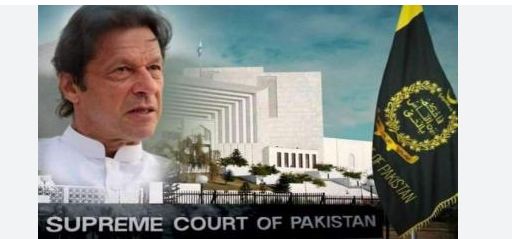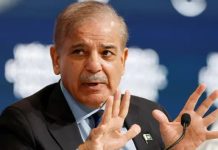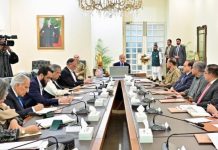ISLAMABAD, Feb 21 (DNA): The Supreme Court on Tuesday heard former prime minister Imran Khan’s petition challenging amendments in the National Accountability (NAB) Ordinance by the government.
A three-member SC bench, comprising Chief Justice of Pakistan Umar Ata Bandial, Justice Ijaz Ul Ahsan and Justice Syed Mansoor Ali Shah, heard the case.
During the course of proceedings, Advocate Makhdoom Ali Khan, counsel for the federal government, said the petitioner must demonstrate that the amendments were discriminated against specific individuals. The applicant had to explain what was the lacuna in the NAB amendments, he added.
He said that it had to be seen what was the applicant’s own conduct. He asked what was the conduct of Imran Khan when the NAB amendments were presented ?
He asked how could Imran Khan call himself the representative of the people for violation of fundamental rights.
Justice Ijaz said that the position of the petitioner was that it was the largest representative party in the country.
Justice Mansoor said the court was not informed how the fundamental rights of the people were being affected by the NAB amendments.
Makhdoom Ali Khan said that no fundamental rights were affected in the NAB Amendments case.
Justice Mansoor asked if the change in the law of accountability made a difference on governance; how did it affect the fundamental rights of the people ? Fundamental rights were either affected or not, he added.
He said that nowhere in the world was 30% of fundamental rights affected and 70% protected.
He asked how could a citizen challenge Parliament’s legislation in the Supreme Court?
He questioned if Parliament abolished the death penalty, could the Supreme Court restore it on the petition of the victims?
Makhdoom Ali Khan said that if there was any flaw in the legislation, it could be corrected by the Parliament. From 2019 till now, 221 references were returned due to NAB amendments, he added.
He said that 29 references were of politicians, out of the 221 NAB references returned.
He said that since 2019, 41 people had been acquitted by NAB, out of which 5 were politicians. Politicians were very few among the beneficiaries or beneficiaries of NAB amendments, he added.
Upon this, the Chief Justice remarked that the politicians benefited from NAB amendments, were few but those were prominent.
Advocate Makhdoom Ali Khan said that the persons acquitted by the NAB amendments were given relief by the NAB Ordinance of 2019 and 2021.
The Chief Justice said that Tehreek-e-Insaaf stated that with the change in the NAB law, the severity and nature of the crime had changed. According to the petitioner, the NAB accused’s wife and children were excluded from the accountability process, he added.
He said that the position of the government was that there should be concrete evidence for the investigation against the wife and children.
Makhdoom Ali Khan asked what fundamental human rights were affected by the high or low standard of evidence? If the court changed the NAB law on the request of one party, then the other party should have the same right, he added.

















